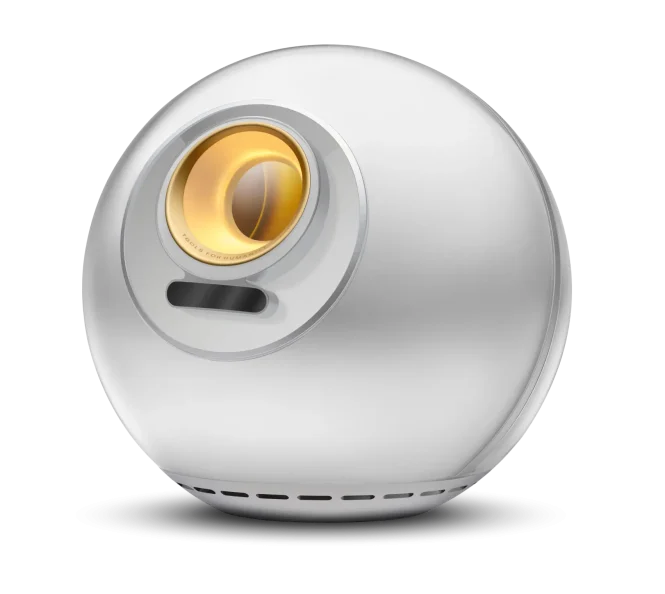
Orbs Make Debut in London – Cryptocurrency
Tools for Humanity launches eye-scanning orbs across the UK
A news article discussing the introduction of innovative eye-scanning devices, known as Orbs, designed to enhance identity verification processes in the UK. Sam Altman backs these devices and aim to provide a secure and efficient method for authenticating individuals. There are currently 1,500 orbs in operation, with plans to distribute an additional 12,000 units over the next year.
These Orbs are being rolled out in high-traffic locations such as shopping malls and high streets, and Tools for Humanity is also collaborating with major retailers to implement self-service Orbs that function similarly to ATMs2.
The deployment is international in scope, with launches in the United Kingdom, the United States, South Korea, and other countries. For example, in South Korea, the company announced that 250 Orbs would be dispersed across the country to help verify 1 million people in the next 12 months5. In the U.S., Tools for Humanity revealed plans to distribute 7,500 Orb devices by the end of the year3.
Key Points
-
Introduction of the Orb:
- The Orb devices will debut in London this week, marking a significant step in identity verification technology.
- These devices scan users’ irises to create a unique digital credential known as World ID.
-
Functionality:
- The Orb captures the unique properties of a person’s iris, which are then used to authenticate their identity.
- This technology aims to distinguish between humans and artificial intelligence, addressing growing concerns about identity fraud.
-
User Experience:
- Users can scan their eyes to generate their World ID, which can be used for various verification purposes, enhancing convenience and security.
- The process is designed to be quick and user-friendly, making it accessible to a wide audience.
-
Market Impact:
- The introduction of the Orb is expected to transform how identity verification is conducted across various sectors, including finance, travel, and online services.
- The technology could lead to increased trust in digital transactions and interactions.
-
Future Prospects:
- The company behind the Orb, Tools for Humanity, plans to expand its services beyond the UK, potentially revolutionizing identity verification on a global scale.
- The initiative reflects a broader trend towards biometric solutions in security and identification.
orb kiosk deployed Conclusion
The launch of the Orb eye-scanning devices represents a significant advancement in identity verification technology. By leveraging unique iris patterns, this innovative approach aims to enhance security, streamline processes, and address the challenges posed by identity fraud in an increasingly digital world.
Orb Kiosk Resources
- Biometric Kiosks – CLEAR to provide fingerprint, iris scan kiosks
- Biometric Kiosk Authentication – A Talk With Frank Olea
- TSA CLEAR – New e-gates at Three U.S. Airports – Kiosk Industry
- Biometric kiosk – Kiosk Machine
About Tools For Humanity
Business Model and Funding
TFH has raised substantial funding—$244 million from investors such as Coinbase and Andreessen Horowitz—to develop the Orb and maintain its software. The majority (75%) of all Worldcoin tokens are reserved for users who sign up, with the remaining 25% allocated to backers and staff. The company’s approach combines incentives for adoption (free Worldcoin for new users) with ambitions to create a decentralized, community-governed financial network.
Criticisms and Challenges
While TFH’s vision is ambitious, it has faced scrutiny regarding:
The centralization of power and potential for surveillance if the network becomes essential digital infrastructure
The volatility and speculative nature of the Worldcoin cryptocurrency
The practicality and ethics of using biometric data for global identification
Despite these concerns, TFH remains one of the most prominent efforts to address the urgent need for human verification in a world increasingly saturated with AI-generated content.
Privacy and Security
TFH emphasizes privacy-preserving technology. The Orb’s iris-scanning process uses secure multi-party computation (SMPC) to anonymize data while enabling verification. After generating an iris code, the system deletes the original biometric data and stores only encrypted, derivative codes on separate servers, making it impossible to reconstruct the original biometric information. The open-source nature of the Orb’s software allows for public scrutiny and validation of these privacy claims.
Worldcoin? What is that
Worldcoin is not Bitcoin. While both are cryptocurrencies, they have significant differences in purpose, technology, and distribution:
Bitcoin is the original cryptocurrency, launched in 2009. It operates as a decentralized digital currency using a proof-of-work (mining) system, where anyone can participate in validating transactions and earning new coins by solving complex mathematical problems. Bitcoin’s primary use is as a store of value and a medium of exchange.
Worldcoin (WLD), launched in 2023, is a separate cryptocurrency project founded by Sam Altman, Alex Blania, and Max Novendstern. Its main goal is to create a global identity and financial network by distributing tokens to individuals who verify their humanity through iris scanning with a device called the Orb. Worldcoin uses biometric verification to ensure each person can only claim tokens once, aiming to enable universal basic income (UBI) and provide a privacy-preserving digital identity. The WLD token is an ERC-20 token on Ethereum, and its distribution does not involve mining

